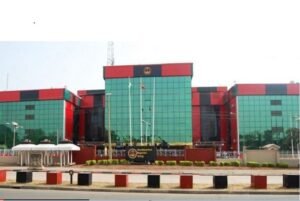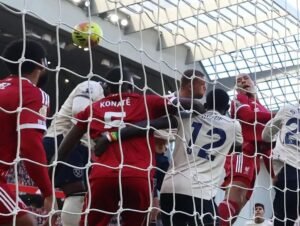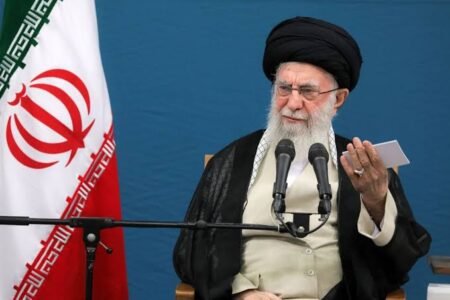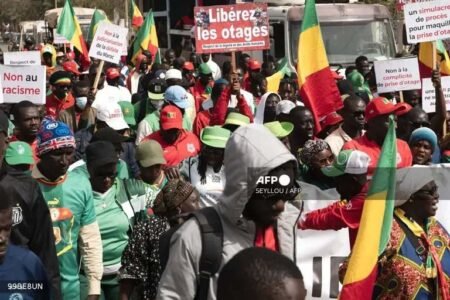President Bola Tinubu’s former southeast spokesman Denge Josef Onoh, has confirmed that former President Goodluck Jonathan is constitutionally qualified to run for Nigeria’s presidency in the 2027 election.
Onoh’s remark came after Tinubu’s Special Adviser on Information and Strategy, Bayo Onanuga, cautioned on Monday that Jonathan’s eligibility for the 2027 fight could be resolved by the court.
However, Onoh disagreed with Onanuga, telling him that the subject had previously been settled in Jonathan’s favor and could not be revisited except for a wild legal pursuit trip.
Onoh stated that it is up to Nigerians to determine who leads them and that President Bola Tinubu’s administration will not infringe on any opponents’ right to contest.
Onoh, speaking to journalists in Yenegoa, Bayelsa State, on Tuesday after receiving a certified true copy of the judgment, stated that Jonathan’s eligibility under constitutional term limits is already a settled legal precedent established by unchallenged judicial rulings that confirmed Jonathan’s eligibility to contest future elections.
“Therefore, President Tinubu should not be deceived by anyone telling him otherwise. This was exactly how Jonathan’s inner cabal during the buildup to the 2015 elections deceived him into believing that he was invisible and that Nigerians loved him, to the extent that he was so carried away that he felt invisible and never saw Tinubu coming.
“Tinubu was the invisible magician that cast the spell that led to Jonathan’s loss at the polls. The president should not fall in the same trap by the voices that surround him now. The one major sincere voice he should listen to is his wife; many will betray him in the coming months,” said Onoh.
Onoh further noted that in May 2022, a binding and unappealed judgment of the Federal High Court in Yenagoa, Bayelsa State (Suit No. FHC/YNG/CS/86/2022) issued a final finding in a lawsuit brought by APC members Andy Solomon and Ibidiye Abraham against Jonathan, the APC, and the INEC.
Justice Isa H. Dashen ruled that Goodluck Jonathan is constitutionally able to run for the presidency of Nigeria again.
2027: Jonathan welcome to contest, Nigerians remember his bad govt – Presidency
Jonathan will win 2027 election – Jerry Gana
The court reasoned that Jonathan’s assumption of office on May 6, 2010, following the death of President Umaru Musa Yar’Adua, was not an election under Section 137(1)(b) of the 1999 Constitution (as amended), but rather a succession to complete Yar’Adua’s unexpired term, invoking the doctrine of necessity and not counting against the two-term limit for elected mandates.
Onoh stated that Jonathan was elected only once, in the 2011 presidential election, and fulfilled a complete four-year term until 2015; his 2015 candidacy was a legal reelection attempt, although he was defeated at the polls, but he did not exhaust his constitutional allowance.
“The 2018 constitutional amendment (via the Fourth Alteration Act), which added Section 137(3) to bar anyone sworn in twice from further contests, does not apply retroactively to Jonathan. The amendment postdated his tenures (2010–2015). It cannot retroactively disqualify rights accrued under the pre-amendment framework.”
Onoh stated that ex-post facto laws are not permitted in Nigeria’s constitutional democracy, a principle supported by precedents such as the Court of Appeal’s 2015 ruling in Cyriacus Njoku v. Goodluck Ebele Jonathan (2015) LPELR-24496(CA), which similarly excluded his 2010 oath from term-counting calculations.
Despite the 90-day window provided by the Constitution and applicable election legislation, Onoh said that neither the plaintiffs nor any other party appealed the 2022 verdict. Over three years later (as of September 2025), the verdict remains final and binding under the doctrine of res judicata, preventing relitigation of the same problems between the same parties.
“Hence, I urge Mr. President not to listen to anyone who comes to spin him with legal possibilities of Jonathan’s eligibility because Nigerian jurisprudence, including Supreme Court decisions like Marwa v. Nyako (2012) 6 NWLR (Pt. 1296) 200, upholds such precedents to ensure legal certainty and prevent endless challenges to settled rights.
“With due respect to Mr. Onanuga, his invocation of future court scrutiny, while respectful of judicial authority, ignores this finality due to the statute of limitations and finality; hence, any hypothetical challenger today would face dismissal for delay, as the core facts (Jonathan’s oaths and elections) are historical and were adjudicated in 2022.”
Onoh stated that the Supreme Court has frequently rejected “stale” cases that could have been appealed sooner (e.g., A.G. Federation v. A.G. Abia State (2001) 11 NWLR (Pt. 725) 689).
He also highlighted a 2013 Federal High Court verdict (Suit No. FHC/ABJ/CS/231/2013, Justice Mudashiru Oniyangi) that cleared Jonathan to run in 2015 and was not appealed, which served as the foundation for the 2022 decision.
“This chain of unassailed judgments creates an impregnable legal shield. So, in my opinion, eligibility is a settled constitutional right, not open to political conjecture. I’m aware many critics in the past have framed opposition as a “risk” for parties fielding him, acknowledging the unresolved tension with the 2018 amendment, but the 2022 ruling resolves it in Jonathan’s favor.
“In essence, the matter is not pending a “jury” (or judiciary) trial; it was conclusively decided. Suggesting otherwise risks undermining judicial authority by implying courts must revisit final verdicts at political whim, eroding the stability essential to Nigeria’s electoral process.
“I owe Mr. President the truth before he’s betrayed again by politicians waving successful statistics around him without any knowledge of how Nigerians truly perceive your administration, which isn’t encouraging at the moment, but it’s within your powers to change the narratives to your favor.
“To honor the rule of law, if Jonathan enters the 2027 race, I advise President Tinubu to engage on visions for economic revival, security, and unity. This elevates the conversation, respecting Jonathan’s cleared path while focusing on voters’ priorities. Nigeria’s democracy thrives when legal finality frees space for ideas, not recycled litigation,” Onoh said.










